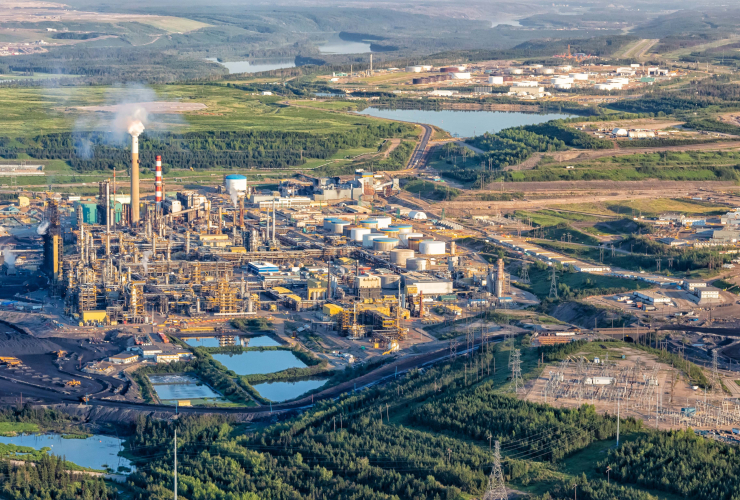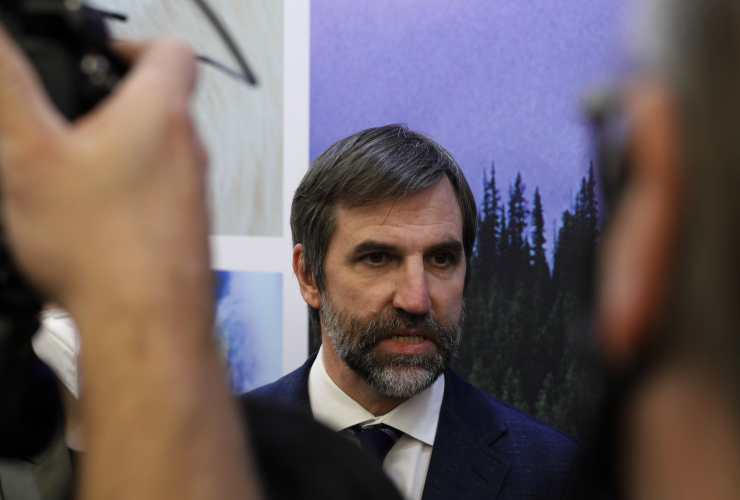Support journalism that lights the way through the climate crisis
“Our world needs climate action on all fronts: everything, everywhere, all at once.”
That was United Nations Secretary-General António Guterres’s response to the Intergovernmental Panel on Climate Change’s recent Sixth Assessment Report.
The stark report, based on the best available science from around the world, says human activities like burning fossil fuels and destroying green spaces are rapidly driving the world toward the point of no return for catastrophic climate disruption.
Meanwhile, here in Canada this spring, wildfires across the country are eviscerating vast swaths of land and driving residents from their homes.
There is no quibbling. The time to act is now, and publicly traded companies have a vital role to play in keeping the global average temperature from rising beyond 1.5 C above pre-industrial levels. Large companies especially can contribute leadership and influence, lobbying power and, above all, influence over their often-massive supply chains.
Through collaborative investor initiatives like Climate Engagement Canada, investors are increasingly demanding that companies “level up” and demonstrate clearly how their plans align with the global effort to limit climate change.
Although some companies in Canada understand the value of having credible climate action plans, too many resort to public relations spin, or greenwashing — appearing to act while doing little or nothing.
Some have addressed Scope 1, or direct emissions, and Scope 2, indirect emissions from energy use, but have failed to address Scope 3 emissions — emissions generated in a company’s supply and value chains, from production to use by consumers. These often account for most of a company’s climate impact.
Dollarama offers an example.
Canada’s largest dollar store chain has a goal to reduce its Scope 1 and 2 emissions intensity by 25 per cent by 2030, but this target isn’t aligned with climate science and the 1.5 C Paris Agreement goal, and the company has no 2050 target or time-bound commitment to disclose and reduce Scope 3 emissions.
With more than 1,400 stores across Canada and an extensive global supply chain for a wide range of products, Dollarama faces significant operational, financial and regulatory risks associated with climate change, but also has significant capacity and influence to effect change.
Large companies like Dollarama must show leadership and demonstrate to investors and customers that they’re committed to doing their part in the urgent effort to limit climate disruption.
Securities and financial regulators are looking to adopt mandatory climate-related disclosures. It will become increasingly important for companies to be transparent in their approach to reducing emissions in the face of a growing scientific consensus on the need for a rapid transition to a low-carbon economy.
Loblaw Companies Ltd. and Empire Company Ltd. are examples of two Canadian companies that have announced commitments to achieve net-zero Scope 1 and 2 emissions by 2040 and net-zero Scope 3 emissions by 2050.
Climate change poses a systemic risk to corporations and investors. It also presents opportunities for companies that lead with transparent action.
SHARE is encouraging shareholders to vote for resolutions calling on companies to develop climate action plans. On June 7, shareholders at Dollarama’s annual shareholder meeting voted on a proposal for the company to adopt a climate action plan for its operations and supply chain.
While the resolution did not pass, the fact that 25.89 per cent voted in favour of Dollarama creating a comprehensive climate action plan demonstrates a growing momentum and interest by shareholders to see companies play a bigger role in planning long term for decarbonizing their operations. (In its response, the company pushed backed, arguing the shareholder proposal was “incompatible with Dollarama’s significant growth plans.”)
There is no hiding from climate change. It creates real risks for the planet — and for companies and their business operations. For shareholders, these are risks to investments.
SHARE’s recently published Corporate Climate Action Plans: A Brief Guide for Canadian Investors shows how investors can evaluate companies’ environmental, social and governance commitments to ensure climate action plans are credible and that they include all impacts, including Scope 3 emissions. Companies can use the guide to develop plans.
“Action” is the key word. To succeed in a decarbonizing economy, corporations can’t just say they’re doing something to reduce their climate impacts; they must demonstrate to investors and the public they’re taking their responsibility seriously.
It’s time for everyone to do their part. Companies that fail to enact and act on concrete plans will have to answer to investors and customers and will fall behind. Those with transparent, actionable plans stand to benefit in a rapidly decarbonizing economy.
The choice is clear.
Anthony Schein is the director of shareholder advocacy for the Shareholder Association for Research and Education (SHARE), a Toronto-based research and advisory firm that works with large investors to promote sustainability and inclusivity.
As equity indexes continue to
As equity indexes continue to ride high; it doesn't appear to me that there is an investor stampede for the exits, the continuing flood of greenwash, buckwash and hugwash notwithstanding.
I'm amazed that presumably intelligent people continue to expect that attempts at business shaming will shock those multimillionaire c-suite inhabitants into voluntarily reducing their ecological impacts.
This is what governments and regulations are for. So, I'd encourage pressure on gov'ts to enact the needed regulation, rather than ineffective scolding.
But, only if you want to inch toward solutions.
Once we have a critical mass of Yvon Chouinards and Ray Andersons in corporate offices, then we can talk about corporate altruism; however, I'd expect to see an original-4 Beatles reunion before that milestone is reached.
Sorry... forgot the punchline
Sorry... forgot the punchline.
Yes, investors obviously will put up with greenwashing.
The trio of "greenwash,
The trio of "greenwash, buckwash and hogwash" says it all, even without a punchline.
And yeah: investors will stick as long as the dividends keep rolling in and the market value keeps climbing.






Comments